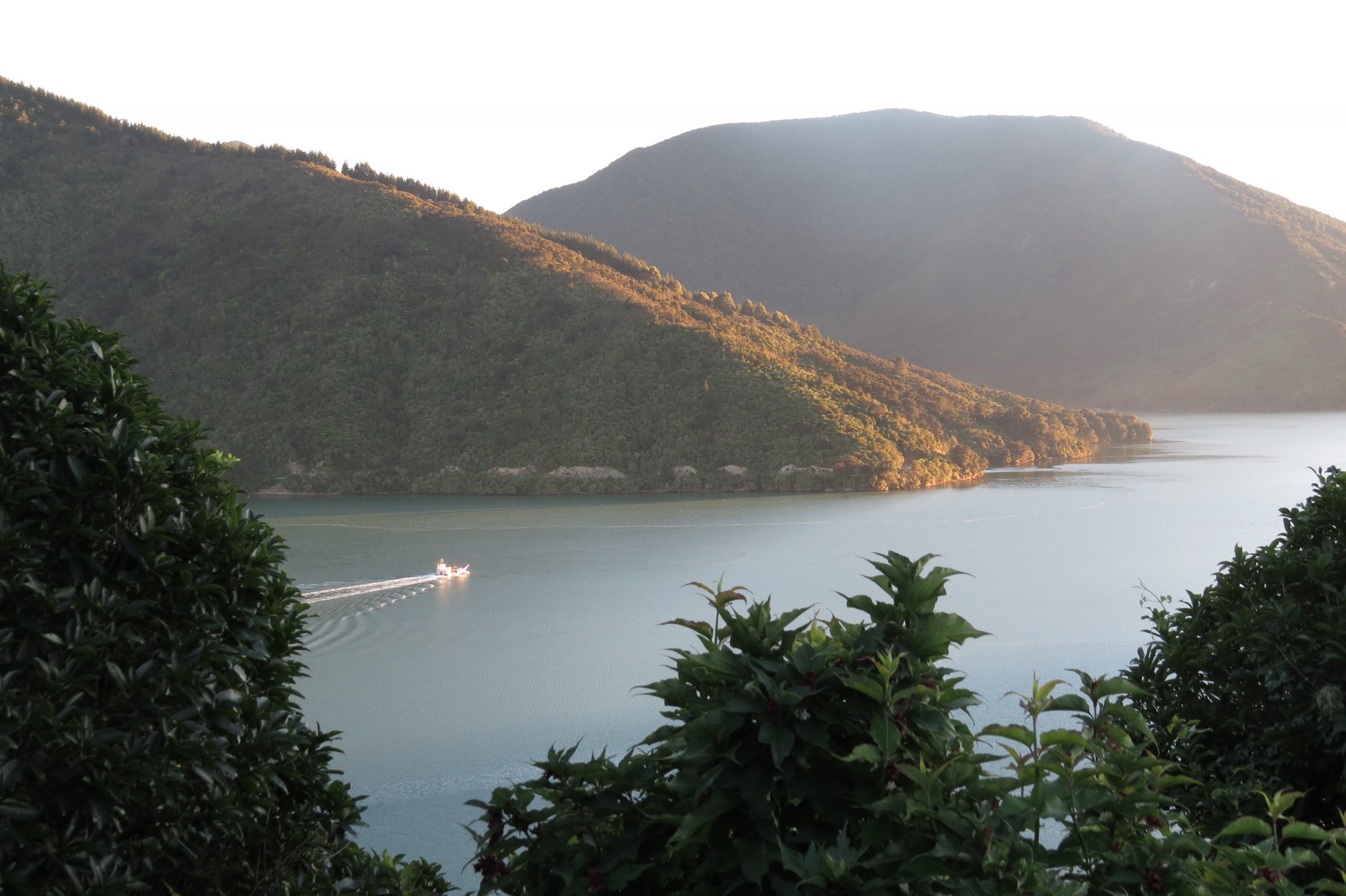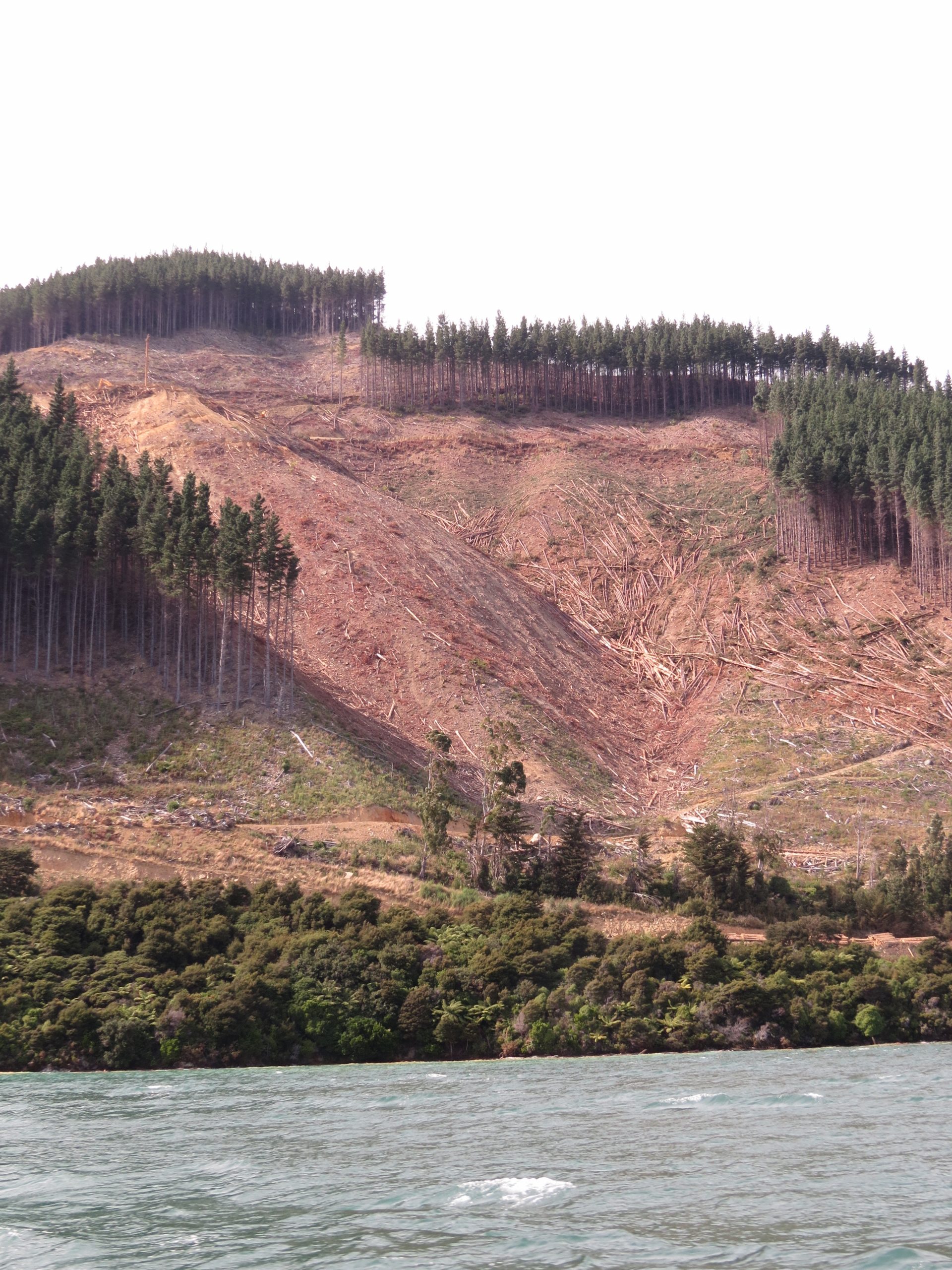A column in Fairfax papers by a Christchurch high school student Mia Sutherland entitled “The Trouble with Pines” has challenged the value of large scale pine plantings aimed at carbon trading and sequestering. It also provoked reaction from conservation and outdoor recreation groups.
Pete Watson, spokesman for the Marlborough Recreational Fishers’ Association, responded by publicly supporting the school student’s opinion piece.
“Mia wrote that clear felling —makes soil more vulnerable to rain and erosion,” he said. “This is so true in the case of the Marlborough Sounds where commercial pine plantations were allowed to be planted on steep slopes and in monoculture style. At clear felling time the Pelorus River’s runoff is heavily silt laden spewing into the inner Pelorus Sound.”
On slopes above the inlets of the Marlborough Sounds, clear felling has resulted in run-off carrying heavy silt loads into the water.
Pete Watson said studies showed heavy siltation of the sea bed and smothering by silt of the ecology as a result. He was critical of the Marlborough District Council for inaction on the issue.
Because of transport costs with forestry management labour and barging logs to Havelock and Picton, forestry in the Sounds was a very marginal exercise, arguably uneconomic.
“I have dived the inner Sounds and the layers of silt are unbelievable,” he said. “Each month and each year of inaction sees further smothering of the sea bed ecology.”
Worse still forestry areas logged were being replanted meaning in another 25 years when logging happens, the same accelerated silt run-off would occur.
“Clearly monoculture commercial forestry is not compatible with the ecology and future of the public’s Marlborough Sounds,” he said.
In addition forestry debris and logs washed into the Sounds became boat navigation hazards.
Andi Cockroft, chairman Council of Outdoor Recreation Associations of NZ (CORANZ) was also critical of monocultures of pine trees.
He said secondary school pupil Mia Sutherland ’s article on pines showed a maturity, perception and environmental awareness that government and councils could learn from. He classed NZ First’s Shane Jones “one billion trees” campaign is ill conceived.
“It seems it’s policy aimed at getting votes rather than being environmentally responsible.”
Andi Cockroft said pine forest monocultures resulted in acidification of the soil health, the spread of wilding pines from windblown seeds – a major problem in the Mackenzie Basin, Waiouru area and Marlborough – and diminished flows in stream due to pines’ thirsty demands compared to native vegetation..
The forestry industry was 70% foreign owned meaning profits tended to flow offshore.
Clear felling techniques were poor with whole hillsides stripped bare. He advocated ‘two cuts’ 12 months apart of a forest harvested along contours to alleviate some of the runoff problem.
“But then foreign corporates will squeal because money and maximising profits is their sole focus – not environmental wellbeing.”
Outdoor recreation access had suffered with locked gates policies by corporate forestry companies said Andi Cockroft.
@ Picturesque Marlborough Sounds but below surface are metro deep layers of silt
@ Clear felling on slopes above Pelorus Sound


